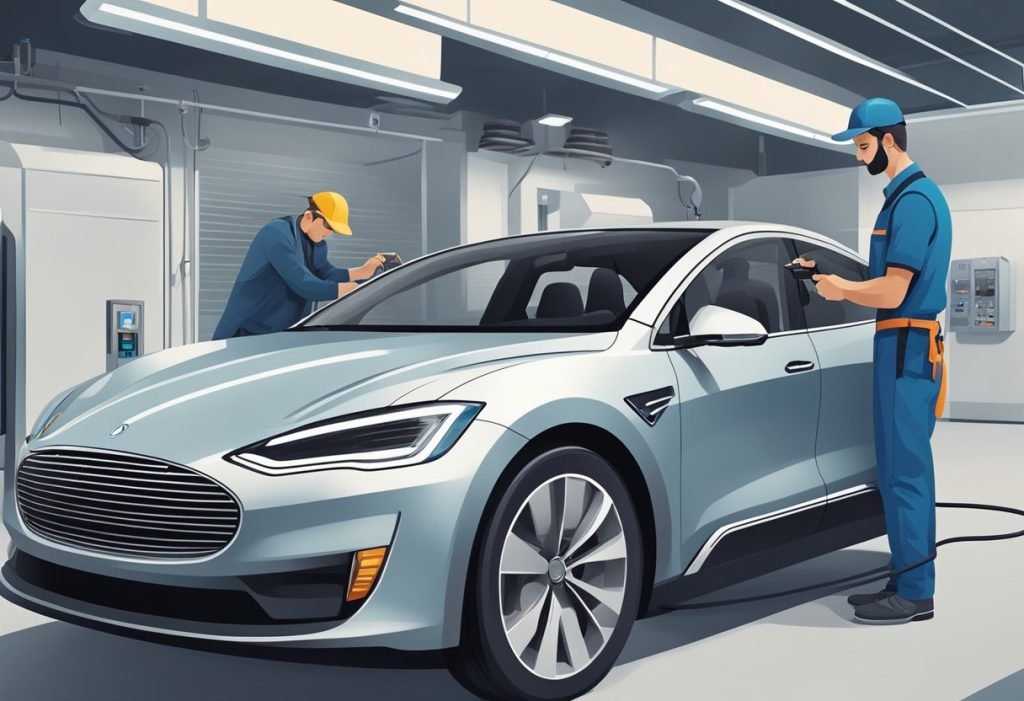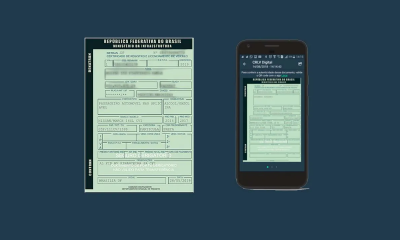Electric Car Maintenance: A Beginner’s Guide
Electric cars are becoming increasingly popular as more people choose to switch to eco-friendly transportation. However, owning an electric car comes with its own set of maintenance requirements that differ from those of traditional gas-powered cars. In this guide, beginners will learn about the basics of electric car maintenance.

One of the biggest advantages of electric cars is that they require less maintenance than gas-powered cars. However, this does not mean that electric cars do not require any maintenance at all. Regular maintenance is still necessary to keep the car running smoothly and to ensure its longevity. In this guide, beginners will learn about the different types of maintenance that electric cars require, including regular maintenance and special maintenance for electric components. This guide will also cover some tips for EV owners to help them keep their cars in top condition.
Understanding Your Electric Vehicle
Basics of Electric Cars
Electric cars are vehicles that run on electricity instead of gasoline or diesel fuel. They are powered by an electric motor and a battery pack, which stores energy and provides power to the motor. Electric cars are becoming increasingly popular due to their environmental benefits and lower operating costs.
Battery Care and Maintenance
The battery is the heart of an electric car, and it is important to take care of it to ensure maximum performance and longevity. Lithium-ion batteries, which are commonly used in electric cars, can degrade over time if not properly maintained. It is important to keep the battery charged and avoid letting it completely discharge. Regular battery maintenance, such as checking the battery health and monitoring the battery life, can help prevent degradation and extend the life of the battery.
Electric Motor and Regenerative Braking
Electric cars use an electric motor to power the vehicle. Unlike internal combustion engines, which rely on combustion to generate power, electric motors use electricity to create motion. Electric cars also have regenerative braking systems, which capture kinetic energy during braking and use it to recharge the battery. Regenerative braking can help improve the efficiency of an electric car and extend its range.
Overall, understanding your electric vehicle is essential for proper maintenance and optimal performance. It is important to follow manufacturer guidelines and warranty requirements for maintenance and care. By taking care of the battery and electric motor, electric car owners can enjoy a safe and efficient driving experience.
Routine Maintenance Tasks
Electric cars are known for their low maintenance requirements, but even they need some routine maintenance tasks to ensure they run smoothly and efficiently. Here are some essential maintenance tasks that every electric car owner should know.
Checking and Replacing Fluids
Although electric cars don’t have a traditional engine, they still have fluids that need to be checked and replaced periodically. Some of the fluids that need to be checked and replaced include brake fluid, coolant, and windshield washer fluid. It’s essential to follow the manufacturer’s recommended maintenance schedule to ensure that these fluids are changed at the right time.
Tire Care and Suspension
Tires are an essential component of any car, and electric cars are no exception. Regular tire maintenance, such as tire rotations and checking tire pressure, can help extend the life of your tires and improve your car’s overall performance. Additionally, it’s crucial to check your car’s suspension regularly to ensure that it’s functioning correctly.
Brakes and Brake Pads
Brakes are an essential safety feature of any car, and electric cars are no exception. Regular brake maintenance, such as checking brake pads and replacing them when necessary, can help ensure that your car stops when you need it to. Additionally, it’s crucial to check your car’s brake system regularly to ensure that it’s functioning correctly.
Overall, routine maintenance tasks are essential for keeping your electric car running smoothly and efficiently. By following the manufacturer’s recommended maintenance schedule and regularly checking and replacing fluids, caring for your tires and suspension, and maintaining your brakes and brake pads, you can help ensure that your electric car stays in top condition for years to come.
Advanced Maintenance Considerations
Software Updates and Technology
As electric vehicles (EVs) become more popular, manufacturers are constantly updating their software to improve performance, efficiency, and safety. It is important for EV owners to stay up-to-date with these updates, as they can greatly impact the driving experience.
Fortunately, software updates for EVs are typically done over-the-air (OTA), meaning they can be downloaded and installed remotely without needing to visit a dealership. However, it is important to keep an eye out for notifications from the manufacturer regarding updates, as they may not always be automatically installed.
In addition to software updates, it is also important to stay informed about new EV technology. This includes advancements in battery technology, charging infrastructure, and autonomous driving features. Keeping up with these developments can help owners make informed decisions about their vehicle and its maintenance.
Longevity and Performance Optimization
Proper maintenance can help extend the life of an EV and optimize its performance. This includes regular maintenance tasks such as tire rotations, brake inspections, and fluid checks.
In addition, owners should be mindful of their driving habits and how they can impact the vehicle’s longevity and performance. For example, aggressive driving and frequent fast charging can put extra strain on the battery and other components, potentially reducing their lifespan.
Maintaining proper temperature control is also important for EV longevity and performance. Extreme temperatures, whether hot or cold, can impact the battery and other components. Owners should be mindful of where they park their vehicle, as well as the temperature settings in their vehicle, to help maintain optimal conditions.
Overall, advanced EV maintenance considerations include staying up-to-date with software updates and new technology, as well as being mindful of driving habits and temperature control. By following these guidelines, owners can help extend the life of their vehicle and optimize its performance.
Preparing for the Road
Before hitting the road, it’s important to ensure that your electric car is in good condition. Below are some tips to help you prepare for a safe and enjoyable ride.
Safety First
Safety should always come first when driving any vehicle, and electric cars are no exception. Before driving, make sure that all safety features are functioning properly, such as the seat belts, airbags, and brakes. It’s also important to check the tire pressure and ensure that all lights are working, including the headlights, brake lights, and turn signals.
Lights and Wipers
Visibility is crucial when driving, especially during bad weather conditions. Make sure that your windshield wipers are in good condition and replace them if necessary. Check that all lights are working correctly, including the interior lights, headlights, and taillights.
Air Conditioning and Heat Pumps
Electric cars come equipped with air conditioning and heat pumps to regulate the temperature inside the car. Before starting your trip, make sure that these systems are functioning correctly, especially during extreme weather conditions.
Road Trips and Mileage
Electric cars are perfect for road trips, but it’s important to plan ahead and ensure that there are enough charging stations on your route. Check online for charging stations along your route and plan your stops accordingly. Additionally, keep track of your mileage and plan your charging stops accordingly.
Daily Use and Transportation
For daily use, electric cars are a great choice as they are environmentally friendly and cost-effective. However, it’s important to ensure that the battery is charged before each trip and that the car is parked in a safe location. Electric cars are also a great choice for transportation services, such as Uber and Lyft, as they are cost-effective and environmentally friendly.
Gas Station and Environment
One of the main advantages of electric cars is that they don’t require gas, which is not only cost-effective but also environmentally friendly. However, it’s important to note that electric cars still require electricity, which is often generated from non-renewable sources. To minimize your environmental impact, consider using renewable energy sources, such as solar panels, to charge your electric car.
In summary, preparing for the road in an electric car involves ensuring that all safety features are functioning correctly, checking that all lights and wipers are working, and ensuring that the air conditioning and heat pumps are functioning properly. Additionally, planning ahead for road trips and keeping track of mileage is crucial, while using electric cars for daily use and transportation services is both cost-effective and environmentally friendly.
Frequently Asked Questions
What are the essential safety features to look for in an electric car?
When it comes to safety features, electric cars are no different from traditional gasoline cars. However, some electric cars come with additional safety features such as regenerative braking, which helps to slow the car down and recharge the battery at the same time. Other safety features to look for include airbags, anti-lock brakes, and a backup camera.
Which electric cars are known for having the lowest maintenance requirements?
Electric cars are known for having lower maintenance requirements than their gasoline counterparts. However, some electric cars have lower maintenance requirements than others. The Tesla Model S and Model X are known for having low maintenance requirements, as are the Nissan Leaf and Chevrolet Bolt.
How often should I schedule maintenance for my electric vehicle?
The frequency of maintenance for an electric car depends on the make and model of the car. However, most electric car manufacturers recommend scheduling maintenance every 10,000 to 15,000 miles or once a year, whichever comes first. This maintenance usually involves checking and replacing the brake pads, rotating the tires, and inspecting the battery and electrical components.
What are the key differences in maintenance between electric and gasoline vehicles?
One of the main differences in maintenance between electric and gasoline vehicles is that electric cars have fewer moving parts, which means there are fewer parts that can break down or wear out. Additionally, electric cars do not require oil changes, spark plug replacements, or emissions testing, which are common maintenance tasks for gasoline vehicles.
Can you list the regular maintenance tasks I should perform on my electric car?
Regular maintenance tasks for electric cars include checking the tire pressure, cleaning the car’s exterior and interior, and checking the battery’s state of charge. It is also important to keep the car’s charging port clean and free of debris.
Where can I find a comprehensive checklist for electric vehicle maintenance?
Most electric car manufacturers provide a comprehensive checklist for maintenance in the owner’s manual. Additionally, there are many online resources that provide checklists and guides for electric vehicle maintenance. It is important to follow the manufacturer’s recommended maintenance schedule to ensure the car’s longevity and performance.
-

 Trânsito2 years ago
Trânsito2 years agoMudança ou Adição de Categoria da CNH: Como Fazer e Quais os Requisitos
-

 Trânsito2 years ago
Trânsito2 years agoCadastro de Instrutor de Trânsito: Como Fazer a Inscrição ou Renovação
-

 Trânsito2 years ago
Trânsito2 years agoCNH Digital: Como Funciona e Quais os Benefícios para os Motoristas
-

 Trânsito2 years ago
Trânsito2 years agoCertidão de Prontuário: Tudo sobre a Documentação do Condutor
-

 Trânsito2 years ago
Trânsito2 years agoAlteração de Dados Cadastrais: Como Atualizar as Informações do Veículo ou do Condutor
-

 Trânsito2 years ago
Trânsito2 years agoTransferência de Veículo: Como Fazer o Registro em Outro Estado ou Município
-

 Trânsito2 years ago
Trânsito2 years agoPerda ou Roubo da CNH: Como Solicitar a 2ª Via pelo Site do DETRAN
-

 Trânsito2 years ago
Trânsito2 years agoCRLV Eletrônico: A Nova Era da Documentação Veicular
